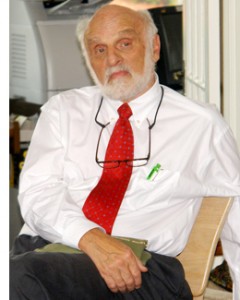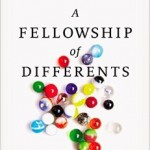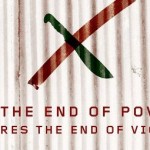 This is the second post in an ongoing series on “Slow Church and the Urgency of Justice“ (Link goes to the initial post in the series).
This is the second post in an ongoing series on “Slow Church and the Urgency of Justice“ (Link goes to the initial post in the series).
To begin our exploration of the relationship between Slow Church and justice, we need a solid definition of justice.
I have the opportunity during Lent this year to speak at Church of the Redeemer Episcopal Church in Cincinnati as part of their lecture series on the theme of Sabbath (details on this event are forthcoming here on this blog). Walter Brueggemann is also speaking in this same series, and I have been told that his talks in the series will be on Sabbath and justice. Since Sabbath is an important part of Slow Church, I was curious what Brueggemann had said in the past about sabbath and justice.
A little Google searching turned up this little video clip of him offering “An Invitation to Justice.”
Here’s a transcript of what Brueggemann says about justice in this little clip:
One of the misfortunes in the long history of the church is that we have mistakenly separated love of God from love of neighbor, and always they are held together in prophetic poetry. Covenant members who practice justice and righteousness are to be active advocates for the vulnerable and the marginal and the people without resources, and that then becomes the way to act out and exhibit one’s love of God. So, love of God gets translated into love of vulnerable neighbor. The doing of justice is the prophetic invitation to do what needs to be done to enable the poor and the disadvantaged and the neglected to participate in the wealth and resources of the community. Injustice is the outcome of having skewed neighborly processes so that some are put at an unbearable disadvantage. And the Gospel invitation is that people intervene in that to correct those mistaken arrangements.
Two related thoughts stand out in Brueggemann’s thoughts here. First, (and this is only mentioned briefly in passing, so it might be easy to overlook), is that the aim of the covenant that we have as the people of God is to teach us to live justly. And of course, we could add that Jesus, as the fulfillment of the Torah, is the primary model that we have of what justice looks like. Our first responsibility in doing justice is then to submit ourselves to a particular community and to be seeking a just life together, and learning together what God’s justice looks like in our particular place. Apart from this sort of commitment to a community, I am skeptical about how effective we might be in addressing injustice in our neighborhoods and the world. I am reminded of Jesus’s admonition to deal with the log in our own eye before we try to remove the speck from our neighbor’s eye. Being part of a community that is seeking to embody just living is a way of dealing with the log of injustice in our own eye (I am also skeptical about our ability to deal with the logs in our eyes as individuals apart from such a community). We need therefore a faith community that will ever be nurturing a positive vision of justice embodied in our life together, and not simply an opposition to injustice.
The second thing that stood out to me in Brueggemann’s concept of justice is that it is predominantly local. Beyond seeking to live justly together in our church communities, we are engaged with our neighbors and living with a hospitable posture that invites them to the justice-seeking life together that we share, and seeks to address the sorts of injustices that would keep them from participating with us in our abundant life together. I don’t think Brueggemann is implying here that we don’t seek to address injustices that extend beyond our community, but rather that we do so not as abstract causes (I will say more on abstract causes at some later point in this blog series), but with our neighbors who are marginalized and oppressed by these injustices.
What I appreciate most about Brueggemann’s concept of justice, and what resonates most with Slow Church, is that it is thoroughly incarnational: justice beginning to be embodied in a particular community, and injustice beginning to be addressed among the real neighbors among whom that community exists.
In my next post, I will explore in greater depth why the local church is essential to our understanding of justice and what that means for questions of urgency.












